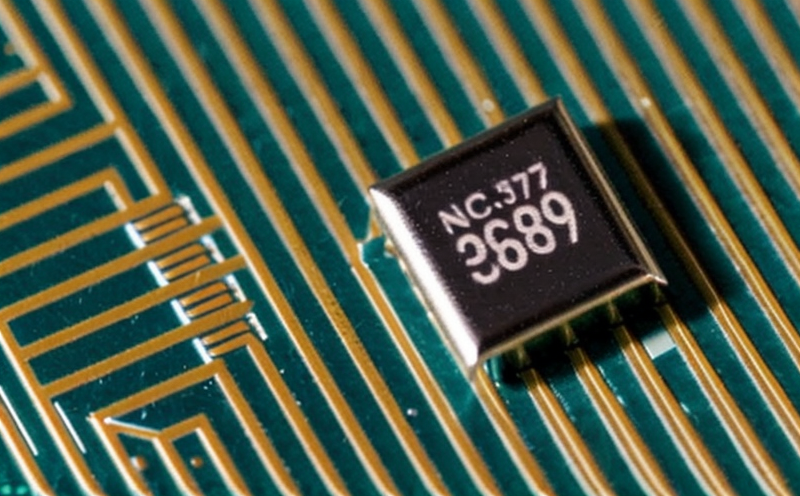JEDDEC JESD22-A119 Power Cycling Reliability Testing
The JEDEC JESD22-A119 test is a critical procedure designed to evaluate the reliability and lifetime of semiconductor devices by simulating real-world power cycling conditions. This test is essential for ensuring that microchips can withstand the harsh operational environments they will face in various industries, including automotive, aerospace, consumer electronics, and industrial applications.
The JESD22-A119 test involves subjecting a device to repeated cycles of temperature changes combined with voltage or current transitions. These conditions mimic the power-up and power-down sequences that occur during normal operation. The goal is to identify any potential weaknesses in the microchip's design, manufacturing process, or materials that could lead to early failure.
One of the key challenges in this testing method is ensuring that the test environment accurately reflects the stresses encountered by the device in its intended application. This requires precise control over temperature and voltage levels, as well as careful monitoring of the device's performance during each cycle. The JEDEC standard specifies a series of steps to be followed, including initial conditioning, power-up and power-down sequences, and final inspection.
The test setup typically includes specialized environmental chambers capable of maintaining stable temperature fluctuations within tight tolerances. For voltage cycling, controlled power supplies are used to apply the specified voltages during each cycle. Data acquisition systems record critical parameters such as current consumption, temperature changes, and any anomalies in device behavior.
After completion of the test, detailed reports are generated summarizing the results. These reports include information on how many cycles were completed successfully before failure occurred, any observed failures or deviations from expected performance, and recommendations for improving the design if necessary. The report may also provide insights into areas where the device performed particularly well, indicating robustness in those aspects.
The JEDEC JESD22-A119 test is not only a technical challenge but also one of precision and repeatability. It requires careful calibration of all testing equipment to ensure consistent results across multiple tests. Regular maintenance and verification of the environmental chambers are crucial to maintaining accurate temperature cycling capabilities.
Understanding the implications of this test for different sectors can help organizations make informed decisions about their quality control processes. For instance, in automotive manufacturing, ensuring that microchips used in critical systems like braking or engine management pass this rigorous testing is paramount. Similarly, consumer electronics companies must ensure that their products are reliable under varying environmental conditions.
By adhering to the JESD22-A119 standard, manufacturers can demonstrate compliance with industry best practices and enhance trust among customers who rely on these advanced technologies for safety-critical applications.
Applied Standards
| Standard Number | Description |
|---|---|
| JESD22-A119 | Semiconductor Device Power Cycling Test Method for Reliability Evaluation |
| Test Parameters | Values |
|---|---|
| Cycle Count | Up to 10,000 cycles |
| Temperature Range | -55°C to +125°C (optional) |
Quality and Reliability Assurance
- Environmental Chamber Calibration
- Data Acquisition System Validation
- Repeatable Test Setup Configuration
To ensure the highest level of quality assurance, our laboratory adheres strictly to all recommended procedures outlined in the JESD22-A119 standard. This includes regular calibration and validation checks on both environmental chambers and data acquisition systems. Additionally, each test setup is configured meticulously to guarantee repeatability between tests.
Data accuracy is paramount, which is why we employ advanced software tools that continuously monitor and adjust temperature settings throughout the testing process. Any deviations from specified parameters are immediately flagged for corrective action by our experienced technicians.
International Acceptance and Recognition
- JESD22-A119 is recognized globally as a key standard for evaluating semiconductor reliability.
- American National Standards Institute (ANSI) accredited.
The JEDEC JESD22-A119 power cycling test has gained widespread acceptance across numerous industries due to its stringent requirements and proven effectiveness. It is widely recognized by international standards organizations such as IEEE, IEC, and ISO for its role in ensuring high reliability levels among semiconductor products.





